On August 5, the Ministry of Education and Training held an online training conference on implementing educational management according to two-level local government.
Commune-level officials lack confidence in directing educational expertise.
At the conference, Mr. Huynh Viet Trung, Chairman of the People's Committee of Hoa Son Commune ( Dak Lak ), stated that due to the lack of specialized education staff, there is still a sense of apprehension and lack of confidence in directing and managing educational institutions in the area. Therefore, to replace the role of the previous Department of Education and Training specialist, the People's Committee of the commune established 3 professional groups: preschool, primary school, secondary school, each group has 3-4 staff, including commune specialists and management staff of educational institutions in the area.
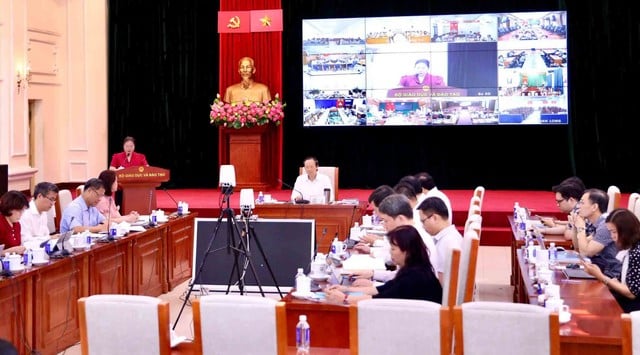
The Ministry of Education and Training organized an online training conference on implementing educational management according to two-level local government, including teacher recruitment.
PHOTO: NGUYEN MANH
Mr. Trung also pointed out the most worrying reality today is the problem of the teaching staff, which is always lacking, while recruiting and attracting teachers to difficult areas is very difficult. From there, Mr. Trung suggested that there must be special policies, and attention must be paid to the staff.
Mr. Nguyen Minh Chau, Chairman of Tan Giang Ward People's Committee ( Cao Bang ), stated that in the whole province, there are 56 communes, but only about 50% of communes have specialized education staff; 36/135 staff have pedagogical qualifications. Mr. Chau also wondered about the authority of commune-level officials in handling pedagogical situations such as teachers violating teachers' ethics, insulting students, or vice versa, students insulting teachers. If commune-level officials do not have deep expertise in psychology and pedagogical skills, they will not have experience in handling such situations.
Commune-level supervision does not give "excessive" instructions
Worried about the risk of "breakdown" in management, Mr. Chau suggested that it is necessary to ensure the staffing of education officers at the commune level, at least 2 positions in each commune. However, he also suggested reducing the requirements for reporting data, records, and meetings that are not really necessary to reduce the burden on schools and commune-level officers.
Regarding this issue, Mr. Thai Van Tai, Director of the General Education Department (Ministry of Education and Training), said that the Ministry also received many questions from localities about whether the Ministry has a mechanism to control and grasp the situation to limit the phenomenon of professional guidance from communes and departments beyond the authority allowed by the Ministry of Education and Training.
Therefore, according to Mr. Tai, in the coming time, the Ministry of Education and Training will conduct inspections of all 34 provinces and cities on the implementation of two-level local government in education. In addition, Mr. Tai also said that he was concerned about whether the chairman of the People's Committee at the commune level has the right to adjust the school year schedule of schools in the commune under his management or not? Mr. Tai stated that in principle, in the event of natural disasters and epidemics that are unforeseen and unexpected, regulations must be implemented to ensure absolute safety for students and people. However, if the contents can be predicted and included in the plan, the Department of Staff and the Chairman of the Provincial People's Committee will decide within the provincial school year schedule framework from the beginning of the school year.

Deputy Minister of Education and Training Pham Ngoc Thuong requested that in order to recruit teachers in time for the new school year, localities need to announce recruitment plans earlier.
Photo: Nhat Thinh
In which cases does the Department of Education and Training appoint and recruit teachers?
Mr. Pham Tuan Anh, Deputy Director of the Department of Teachers and Educational Managers (Ministry of Education and Training), noted: From now until the Law on Teachers and its implementing documents come into effect, the Ministry of Education and Training requires that the work of contracting, recruiting, and transferring inter-school teachers will be decentralized and authorized by the Provincial People's Committee, in which the direction should be assigned to the Department of Education and Training.
The assignment and appointment of principals and vice principals at public schools under the state management of two or more commune-level administrative units will be advised by the Department of Education and Training to the provincial People's Committee or directly implemented according to decentralization and authorization. The provincial People's Committee also needs to pay attention to policies and regulations for teachers teaching in inter-school and inter-commune schools...
However, Mr. Nguyen Van Hieu, Director of the Department of Education and Training of Ho Chi Minh City, suggested that there should be clear and unified regulations on the authority to recruit and transfer teachers right from this stage instead of waiting until the Law on Teachers comes into effect, to avoid difficulties later. According to Mr. Hieu, Ho Chi Minh City has 19/168 wards, communes, and special zones with only 1 junior high school; some wards and communes do not have junior high schools. Therefore, if the appointment and recruitment are completely assigned to the commune level, it is not reasonable in the actual situation. Mr. Hieu also proposed reducing the registration time for teacher recruitment from 30 days to about 10 - 15 days in time for the new school year.
Ms. Nguyen Thi Nguyet, Director of the Department of Education and Training of Ha Tinh, shared that to solve the problem of local teacher shortage, the Department of Education and Training advised the Provincial People's Committee to use the policy of secondment instead of rotation because the education sector has a characteristic of having a large number of female teachers, who are responsible for their families and cannot work away from home for long periods of time. Regarding teacher recruitment, Ms. Nguyet said that she has coordinated with the Department of Home Affairs to advise the Provincial People's Committee to agree to assign the Department of Education and Training to directly recruit teachers, and the Department of Education and Training is currently reviewing to implement. The transfer and appointment of school leaders within the scope of 2 communes or more is awaiting specific instructions.
Assigning teachers to commune level will make local shortages and surpluses worse.
Concluding the conference, Mr. Pham Ngoc Thuong, Deputy Minister of Education and Training, affirmed that according to the Law on Organization of Local Government, the authority to appoint, dismiss, transfer, and remove the heads and deputy heads of preschool, primary, and secondary schools is decided by the Chairman of the People's Committee at the commune level. The recruitment and transfer of teachers is the responsibility of the Department of Education and Training.
Previously, the whole country had 705 district and county levels, which were 705 focal points for managing cadres and teachers from preschool, primary, and secondary schools. This is one of the reasons for the local surplus and shortage of teachers. Because the district level cannot transfer teachers from one district to another. Therefore, if we now assign the recruitment and transfer of teachers to the commune level, the whole country will have 3,321 focal points, the local surplus and shortage of teachers will be more serious because it is impossible to transfer teachers from one commune to another. Not to mention, can the commune level develop exam questions and grade teacher recruitment exams in the current context?
Affirming that when building the Law on Teachers, the Ministry of Education and Training has advocated reducing intermediaries and focal points in recruiting and using teachers, Deputy Minister Pham Ngoc Thuong said that when assigning the recruitment of teachers to the Department of Education and Training, the whole country will only have 34 councils, the exam will be held in 1 day and each candidate will have "n wishes". If the first wish to enter commune A is not passed, the second wish to enter commune B can be considered... The chance of taking the entrance exam for bachelor of education will increase instead of having only 1 wish, if not passed in commune A, they will have to wait for commune B to take the entrance exam to retake the exam.
Regarding the proposal of the Director of the Department of Education and Training of Ho Chi Minh City to reduce the time for announcing teacher recruitment from 30 days to about 10 - 15 days to speed up the teacher recruitment process, in accordance with online registration, Mr. Pham Ngoc Thuong noted that this time is implemented according to the Law on Civil Servants and Public Employees. Moreover, the registration period of 1 month is also to give more candidates a chance, not the time of registration is fast or slow. In order to recruit teachers in time for the new school year, localities need to announce the recruitment plan earlier.
Not yet mandatory to teach 2 sessions/day in middle school and high school
After a period of waiting, the Ministry of Education and Training has issued guidelines for organizing 2 sessions/day. For junior high school and high school levels, the implementation of 2 sessions/day will follow a roadmap; organized and implemented when facilities and teaching staff are sufficient. The arrangement of time and schedule ensures a minimum of 5 days/week, a maximum of 11 sessions/week. Each day, there will be no more than 7 teaching periods, each period lasting 45 minutes.
At these levels, the first session covers the compulsory general education program; the second session organizes review and tutoring for students who have not met the requirements of the general education program, fosters excellent students, organizes review for final year students preparing for the 10th grade entrance exam, organizes scientific and technical research activities, career education, experiential activities, STEM/STEAM education, reading culture education, school culture, ethics education, life skills education, financial education, traffic safety and order, digital literacy education, artificial intelligence, foreign languages, sports, arts, etc.
Source: https://thanhnien.vn/giam-khau-trung-gian-trong-tuyen-dung-giao-vien-18525080521322312.htm







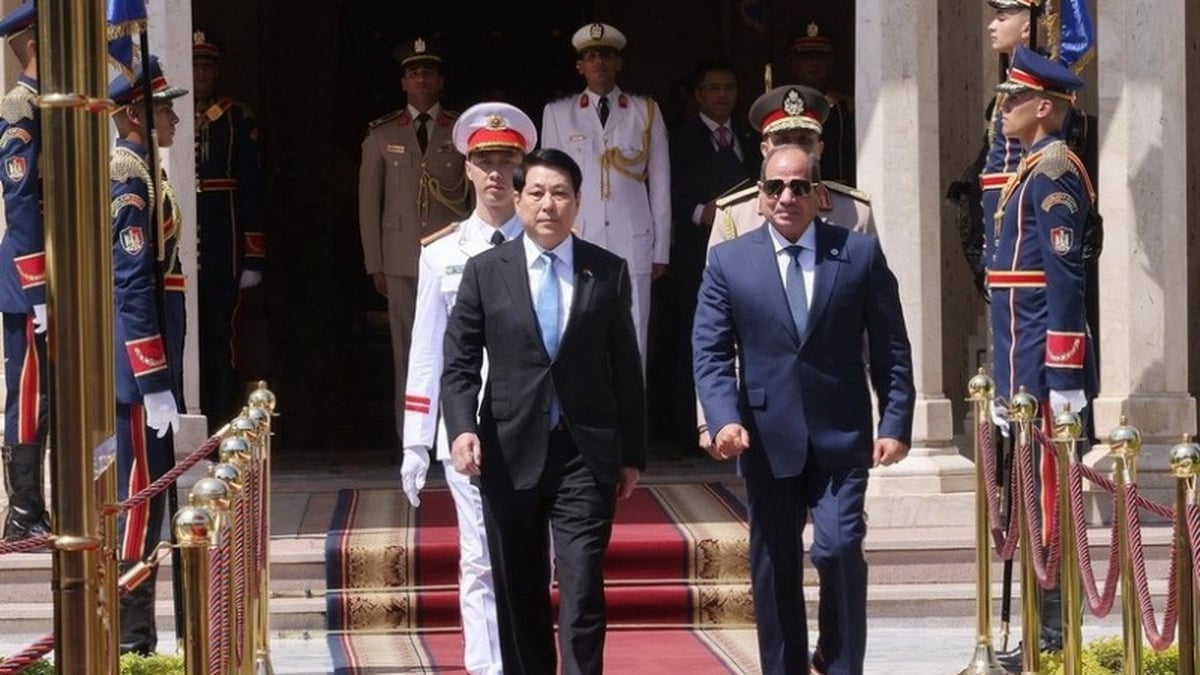

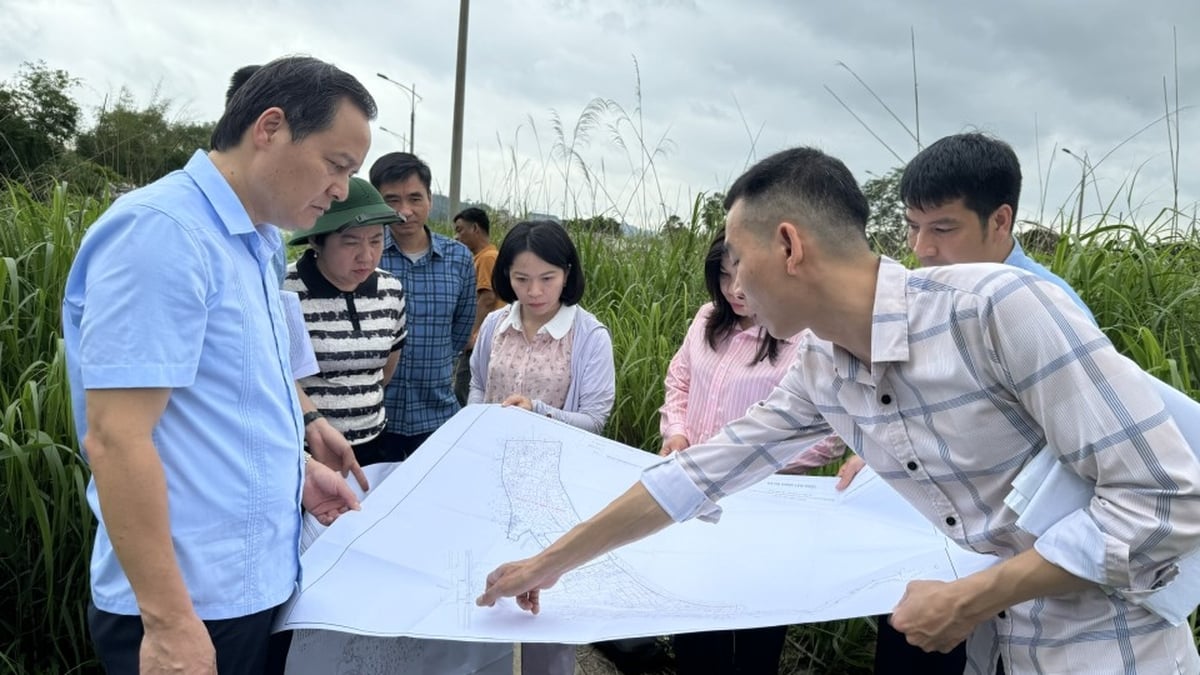




















![[Photo] Nghe An: Provincial Road 543D seriously eroded due to floods](https://vphoto.vietnam.vn/thumb/1200x675/vietnam/resource/IMAGE/2025/8/5/5759d3837c26428799f6d929fa274493)





























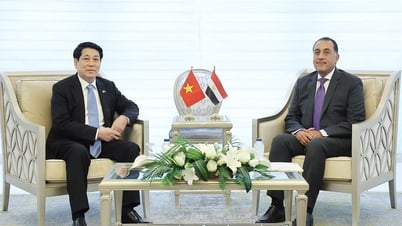

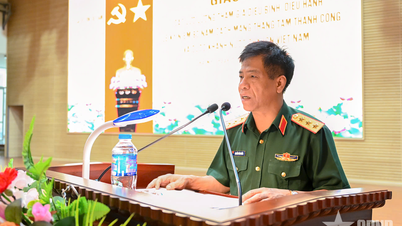






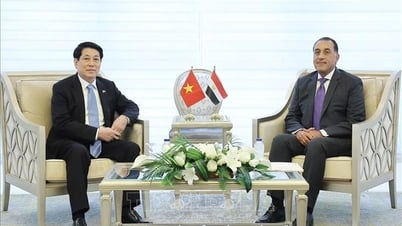


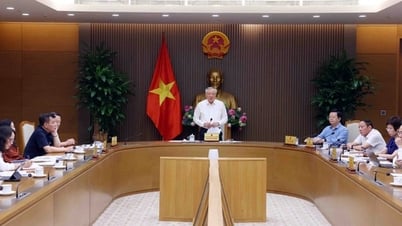

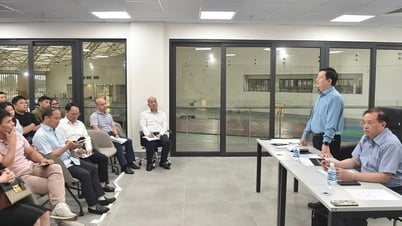

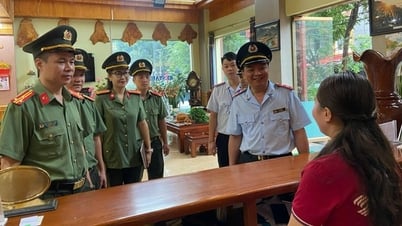






















Comment (0)